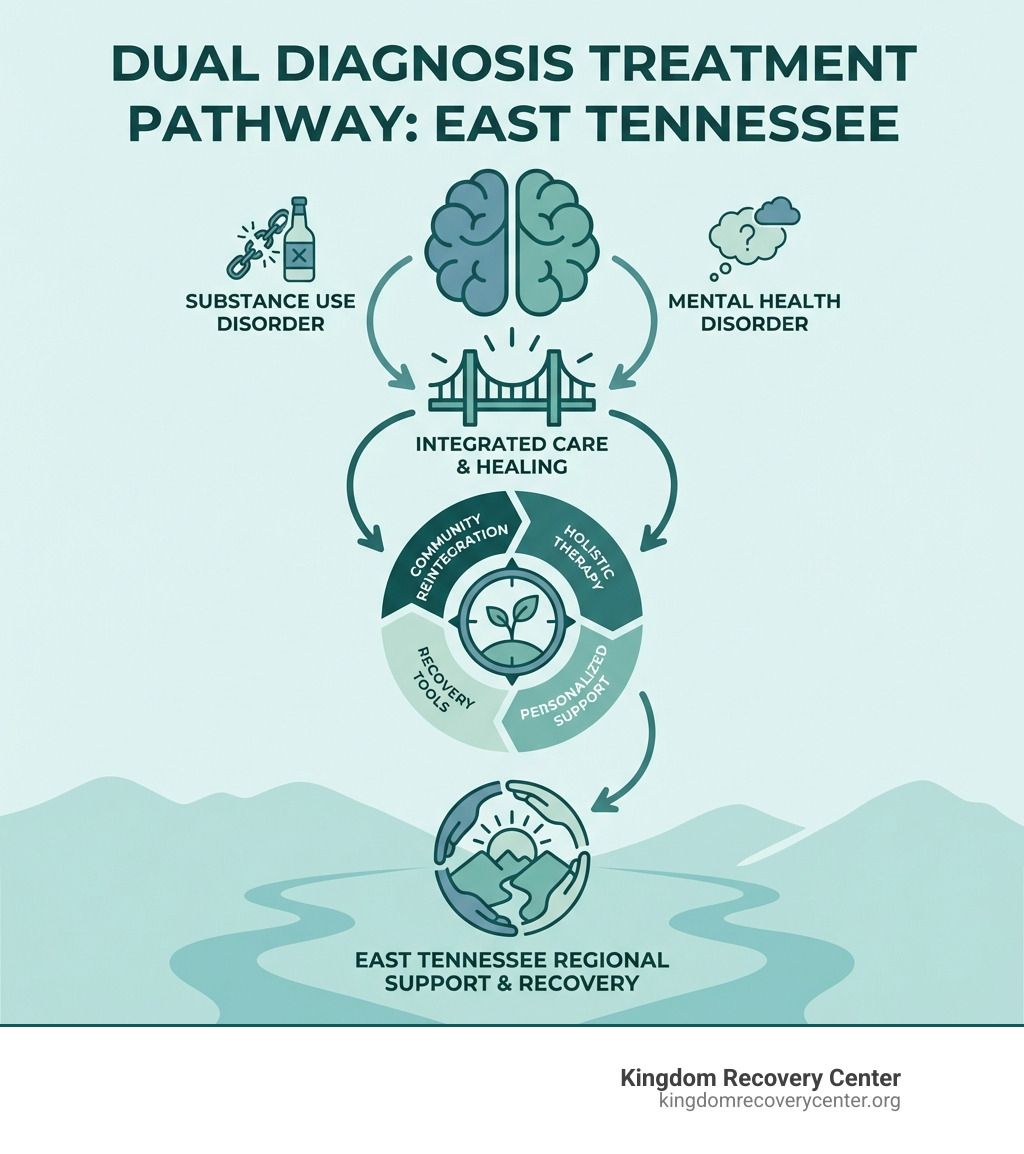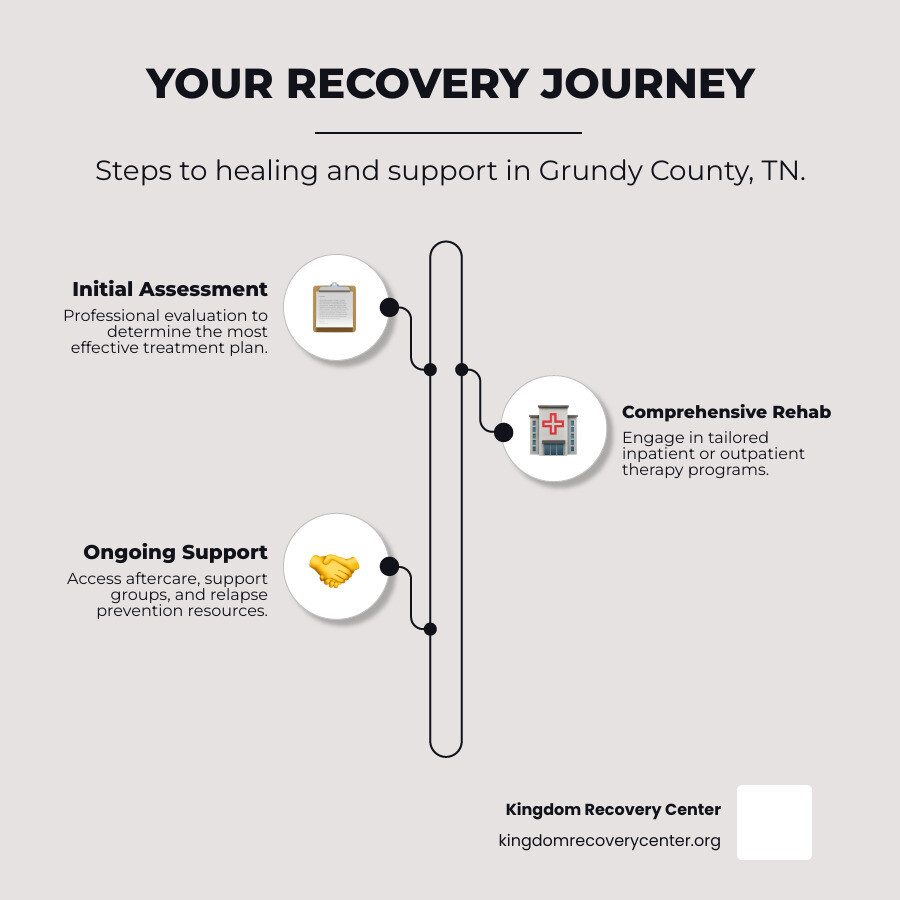
What to Expect on Your Recovery Journey After Detox
What do you face after detox? This post explains the transition from detox to continued treatment, including rehab programs, therapy, and sober living options. It covers understanding the recovery journey, key signs of progress, and relapse prevention strategies. Readers gain practical insights to address uncertainties while ensuring they build a strong recovery foundation.
Key Takeaways
- structured support plans and daily evaluations contribute to gradual recovery steps
- patients monitor physical changes and manage emotional distress
- aftercare programs include therapy, healthy routines, and regular assessments
- support groups and remote sessions provide practical guidance after detox
- acknowledging milestones and adapting routines boost recovery confidence
Understanding Your Recovery Journey After Detox

The initial recovery phase after detoxification focuses on emotional and physical adjustments. Patients may observe changes in vitamin levels, experience depression, or feel boredom as they navigate developing a new routine under a physician’s guidance. This section offers practical insights into these challenges, including verification-of-benefits, and the steps involved in starting recovery.
The Initial Phase of Recovery
The initial phase of recovery involves recognizing and managing physical adjustments such as vitamin level shifts while addressing emotional challenges like shame and sleep deprivation, and may include treatment options such as methadone. Accountability for personal progress builds confidence throughout this period:
- Monitoring physical changes
- Managing emotional distress
- Implementing structured support plans
Professionals provide structured guidance, ensuring patients establish accountability while developing practical steps to overcome feelings of isolation. Clear action plans and professional oversight help restore confidence during this critical stage of recovery.
Emotional and Physical Adjustments
Recovery after detox involves significant emotional and physical shifts, where professionals and support groups, including a reputable nonprofit organization, guide adjustments in daily routines and treatment plans. The process often requires monitoring of eating habits and managing treatments like benzodiazepine therapy, with some patients even experiencing symptoms such as diarrhea before a steady improvement is seen:
| Step | Description |
|---|---|
| Physical Monitoring | Tracking changes including vitamin levels and managing diarrhea symptoms |
| Treatment Adaptation | Adjusting therapies like benzodiazepine protocols under expert supervision |
Patients utilize resources from the internet and various educational outlets to gain insights into effective recovery methods that ease emotional distress and stabilize physical health. This ongoing support fosters resilience while emphasizing reliable information, ensuring individuals can make informed choices about eating well and adhering to medically advised interventions.
Developing a New Routine
Patients undergoing recovery are encouraged to establish a clear daily schedule that includes routine evaluations of their progress. This method helps address pain and fluctuations in mood while considering the challenges of prescription drug addiction recovery, guiding them toward a balanced lifestyle.
Establishing a new routine involves practical steps that assist in handling feelings of sadness and physical discomfort associated with the early stages of recovery:
| Step | Action |
|---|---|
| Daily Monitoring | Conduct regular evaluations to note changes in mood and address pain management effectively. |
| Structured Activities | Introduce consistent activities that support recovery from prescription drug addiction while reducing sadness. |
Key Signs of Progress During Recovery

This section outlines practical steps for measuring progress, from recognizing behavioral changes to tracking emotional well-being. It addresses setting a clear goal while integrating stress management techniques, fostering motivation, and building a healthy habit. A review of one’s medical history and celebrating milestones further guides recovery after detox.
Recognizing Behavioral Changes
The recovery journey after detox involves noticeable behavioral changes that can indicate progress when managing fatigue and adjusting nutrition. Clinicians in Ohio have observed that activities such as yoga and structured physical routines help signal a turning point, especially for those dealing with substance dependence.
Patients often experience shifts in their daily patterns as they re-establish healthy habits, which include monitoring fatigue levels and improving nutrition. Professionals suggest that integrating practices like yoga not only promotes physical well-being but also supports mental clarity during recovery from substance dependence in Ohio.
Tracking Emotional Well-Being
Tracking emotional well-being during recovery involves monitoring mood changes and observing signs of stability with practical assessments that prevent potential failure in managing stress. Professionals advise using routine check-ins, such as an email update to a care team, to ensure nutritional support through proper nutrient intake and a balanced appetite, debunking the myth that emotional shifts are random and uncontrollable.
Clinicians emphasize the importance of daily reflection and self-assessment, which provides actionable insights for patients on their path to recovery. By addressing emotional shifts promptly and confirming progress through measured feedback, patients learn to adjust routines that support overall mental health while ensuring that setbacks do not result in failure.
Celebrating Milestones
Clinicians note that acknowledging milestones can significantly boost recovery confidence, especially when patients see improvements in sleep and overall well-being. Celebrations of progress may include positive changes in physical responses to medications and the body’s chemistry, which reinforce the benefits of recovery from substances like methamphetamine.
Structured milestone reviews empower individuals to address challenges such as managing health insurance needs during treatment and monitoring complex factors like pregnancy complications. Professionals advise that regular celebrations, whether small or substantial, offer practical reinforcement and ensure the continued focus on recovery goals.
Relapse Prevention Strategies for Long-Term Success

Experts stress the need to recognize triggers and high-risk situations, including influences from liquor store advertising. Professionals favor building a strong support network using therapy and rehab sessions, implementing coping mechanisms, and engaging in healthy activities alongside medication management to guide a stable recovery journey.
Identifying Triggers and High-Risk Situations
Professionals emphasize that identifying triggers and high-risk situations is crucial for a sustainable recovery journey after detox. They advise patients to maintain awareness of factors that may upset emotion and memory, such as unexpected changes in blood pressure during moments of stress, and suggest incorporating relaxation techniques to counter these effects.
Experts recommend that individuals take detailed notes of instances that challenge their emotional stability, using both practical insights and personal experiences. Maintaining strict routines that focus on steady blood pressure and a clear awareness of one’s emotional state helps optimize memory and supports long-term success in relapse prevention.
Building a Support Network
The support network is built on reliable relationships with a nursing team and dedicated health professional who provide clear guidance. This community helps patients develop effective life skills and counter challenges associated with depressant usage during recovery.
Engagement with peers in regular community meetings and structured sessions enables individuals to share experiences and practical tips for managing stress. Collaborating with knowledgeable health professionals offers personalized advice, ensuring that each patient receives support tailored to their recovery journey after detox.
Implementing Coping Mechanisms
Implementing effective coping mechanisms plays a crucial role in the journey after detox, enabling individuals to address substance abuse challenges while understanding the concept of self-regulation. Effective strategies include:
- Adopting a healthy diet to support physical recovery
- Managing anger with targeted techniques to ensure emotional balance
- Engaging in peer support sessions to reinforce recovery efforts
Professionals recommend focused coping methods to help manage the stresses linked to recovery, ensuring that techniques are personalized and practical for those overcoming substance abuse issues. By integrating these strategies, patients build resilience and achieve steady progress on their journey after detox.
Engaging in Healthy Activities
Engaging in healthy activities enables a veteran patient to manage stress and reduce risks associated with dehydration and disease. Routine exercises and guided therapy sessions support recovery by maintaining physical stability and offering practical strategies for relapse prevention.
The use of activities such as structured group exercises and mindfulness practices gives patients clear tactics to alleviate stress and prevent relapse in the recovery journey after detox:
- Scheduled physical exercise to manage stress levels
- Guided therapy sessions to build resilience
- Mindfulness practices to monitor mental and physical well-being
Life After Detox: What to Anticipate

This section outlines challenges patients may face during recovery, including managing pressure and adjustments. It also covers strategies for building meaningful relationships via Narcotics Anonymous programs and guidance from centers for disease control and prevention. Finally, it examines practical steps to establish a sober lifestyle, addressing the root issues that affect long-term success.
Challenges You May Face
Patients may face challenges such as fluctuations in blood levels due to withdrawal from a chemical substance and residual effects from alcohol use, which may trigger headache and other health issues:
- Monitoring changes in blood markers
- Managing cravings related to alcohol
- Addressing headaches and overall health concerns
Experts note that maintaining structured support and regular health checkups assists in managing withdrawal symptoms effectively, ensuring that patients adjust their recovery plan to mitigate the impact of these challenges and support long-term health.
Building Meaningful Relationships
Building meaningful relationships after detox supports progress and long-term sobriety, as professionals advise integrating regular exercise to stabilize both physical and emotional wellness. Observing drug withdrawal symptoms under proper medical care and guidance, including strategies that mention naloxone when needed, helps individuals form bonds with peers who understand their journey.
Establishing strong connections involves actionable steps tailored to individual needs and gender considerations, ensuring practical support during recovery:
- Effective communication to share experiences
- Mutual understanding of challenges related to drug withdrawal and sobriety
- Participation in exercise programs to strengthen relational bonds
Establishing a Sober Lifestyle
The clinic offers focused support to individuals embracing a sober lifestyle by providing structured health care services, a balanced diet plan, and vigilant monitoring of medications such as fentanyl to ensure overall well-being. Expert practitioners address concerns related to recovery, helping patients navigate challenges and safeguard sensitive conditions that may affect the fetus.
Practical steps are implemented with regular assessments and guidance to create lasting behavioral change and support sustained recovery:
| Action | Result |
|---|---|
| Clinic Consultations | Custom health care strategies and recovery support |
| Balanced Diet | Enhanced physical stability and nutrition |
| Medication Monitoring | Reduced risks associated with fentanyl and protection for the fetus |
The Role of Aftercare in Post Detox Treatment

Aftercare is vital for reducing addiction relapse. It emphasizes understanding aftercare programs, the importance of continued support, and access to diverse therapy options. It also builds skills in coping and managing opioid use disorder, while encouraging participation in a constructive hobby to aid recovery.
Understanding Aftercare Programs
Understanding aftercare programs is a vital component of recovery, as these initiatives help patients manage dose adjustments and address issues such as insomnia while recalibrating their reward system. Expert guidance offers practical advice, ensuring that patients are equipped with strategies to avoid emergency situations and make thoughtful decisions about their treatment journey.
Effective aftercare involves a blend of structured therapy sessions and personalized support plans that monitor symptoms like insomnia and evaluate the impact of any medication dose adjustments. This tailored approach drives better outcomes by helping patients reshape their reward system and maintain a focused thought process on long-term recovery goals.
Importance of Continued Support
Continued support in aftercare plays a vital role in maintaining recovery momentum by providing essential information about managing physical dependence and conserving energy during challenging times. This support system enables effective learning through shared practical insights that help reduce negative physical responses, such as increased perspiration, and promote a stable recovery environment.
Persistent guidance from health professionals offers patients clear strategies to sustain their progress while addressing ongoing challenges. Such support builds confidence by continuously updating individuals on the latest information and learning opportunities to better manage energy levels and overcome physical dependence after detox.
Types of Therapy Available
Therapy choices following detoxification include medication assistance and counseling sessions that help patients manage the challenges of withdrawal, such as the fear of going cold turkey or the loneliness that may arise during recovery. Professionals often introduce options like naltrexone and antidepressant treatments, which aid in stabilizing mood and reducing relapse impulsion.
Dedicated therapists offer practical insights and structured support plans that address both the physical and emotional aspects of recovery. This approach minimizes the fear associated with abrupt treatment changes, ensuring that patients are not left to face cold turkey withdrawal or persistent feelings of loneliness on their own.
Resources for Ongoing Recovery

Resources include support groups and community centers offering practical guidance on managing relapse, tracking vital signs, and balancing stimulant effects from caffeine. Online therapy and remote counseling sessions, which may feature meditation techniques, provide additional access. Educational materials and workshops foster growth, ensuring a comprehensive structure for recovery after detox.
Support Groups and Community Resources
Support groups and community resources offer practical support for individuals navigating recovery challenges after detox, with guidance rooted in established standards from the food and drug administration. These resources provide expert insights into sud management and practical approaches that improve quality of life while addressing issues such as hypertension.
Local and online peer networks connect individuals with professionals who monitor progress and suggest actionable steps for effective management. Community resources emphasize collaborative learning, offer practical examples to boost recovery efforts, and consistently support efforts to enhance quality of life throughout the journey.
Online and Remote Therapy Options
Online and remote therapy options provide practical support for patients adjusting to recovery, addressing issues related to opiate use and muscle tension within daily behavior changes. Practical examples include interactive sessions that offer actionable insights into what we treat and help patients build resilience through coordinated virtual appointments:
- Interactive video consultations
- Real-time progress monitoring
- Personalized coping strategies
Remote therapy empowers patients by enabling experienced professionals to share proven techniques and behavioral insights, which can significantly improve their recovery experience. This structured support helps individuals manage changes in behavior while addressing physical symptoms, ensuring a steady path toward long-term well-being.
Educational Materials and Workshops
Educational materials and workshops offer clear strategies to improve recovery outcomes after detox, highlighting essential steps to manage the heart and mind effectively. These sessions equip patients with actionable insights, helping them avoid unexpected trips to the emergency department or hospital while addressing the impact of liquor consumption on overall health.
Workshops provide practical training in self-monitoring and stress relief, reinforcing the importance of balanced routines for a sustainable recovery journey. Expert advisors share expertise that aids individuals in managing physical and emotional challenges, ensuring that the heart and mind remain resilient throughout the process.
Conclusion
The recovery journey after detox defines a critical path where physical adjustments and emotional challenges require focused management. Patients gain confidence through targeted strategies such as routine monitoring, effective coping mechanisms, and structured support plans. Professionals guide patients in building healthy habits and purposeful relationships that reinforce long-term success. This approach empowers individuals to achieve stability and resilience by actively addressing each phase of their recovery.



